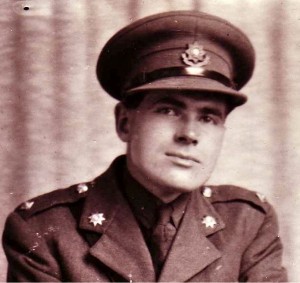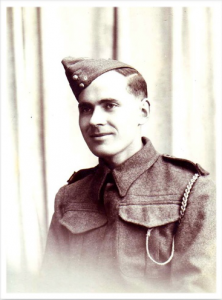Imagine that you’re a young LGBT person, and you’ve recently made the bold decision to come out to your friends and family. Four months down the line – faced with a lack of acceptance from your parents and peers – you’re regretting it. You may have at some point been one of the over 4500 LGBT victims of hate crime, or one of the 50% of openly gay people in our schools today who are victims of homophobic bullying. Some LGBT people, faced with this shame, end up contributing to the shocking 30-40% of young LGB people who attempt suicide. Others still make a stand and refuse to bow down to their parents. They’re often the ones who are driven out of their homes, contributing to the disproportionately-high number of LGBT rough sleepers on our streets today (25% of rough sleepers in urban areas being LGBT).
All of the above figures show that homosexuality is still not fully accepted in British society today. ‘Conversion Therapy’ is just another consequence of this lack of acceptance. It’s what happens when LGBT people come to believe in desperation that it is, in fact, possible to change who they are in order to become accepted by others. They end up going to some some sessions with a “therapist” in the hope that they can “cure” their homosexuality.
What we argue is that ideally, LGBT people shouldn’t have to make this choice between their family and their sexuality. Their fears, uncertainties and worries are far better resolved by changing the attitudes of those in Britain who push LGBT people to choose ‘conversion’ in the first place. Homosexuality cannot be cured in Britain, but intolerance can, and bringing an end to conversion therapy in the UK is offers the first and easiest step in this long process of curing intolerance.
Despite its greater prominence in the US, Gay Conversion is a very real and present danger in Britain too. The Guardian recently noted a 2009 survey of 1300 British psychiatrists, therapists and psychoanalysts. Over 200 “had attempted to change at least one patient’s sexual orientation, with 55 saying they were still offering such therapy.” Patrick Strudwick, in the Independent, brought the issue into the open with an undercover investigation into the practitioners of gay conversion in the UK, including one, Lesley Pilkington, who was actually part of a professional body, the British Association of Counsellors and Psychotherapists (BACP). He also noted how British gay conversion groups – taking a leaf out of American organisations’ books – are seeking various funding streams and in some cases are even getting patients via the NHS, with Pilkington getting most of her clients through NHS GP’s surgeries.
But conversion therapy has only ever received occasional and rarely focussed media attention in Britain, and therapists who practice gay conversion have always been able to operate within the grossly under-regulated Psychotherapy profession. I can’t stress “under-regulated“ enough. We’re currently in the ludicrous position where the two main professional bodies for psychotherapists, the BACP and UK Council for Psychotherapists (UKCP), have now made statements condemning conversion therapy as both un-medical and indeed potentially harmful. If you’re part of one of these groups – like Lesley Pilkington initially was, before the BACP struck her off – you’ll rightly face disciplinary action for offering conversion therapy. But unlike other medical sectors, there’s nothing in law saying you have to be part of a professional body to carry out psychotherapy. Despite what readers might assume, “psychotherapy” in Britain is thus a completely meaningless term: anyone in Britain can call themselves a psychotherapist and engage in some of the most heinous of practices unmolested, without being part of a professional body.
This ludicrous oddity of under-regulation obviously hurts far more people than just LGBT people undergoing “conversion” therapy. It’s a problem for any consumer who makes the not unreasonable assumption that by signing up with a psychotherapist, they’re getting something somehow professional or effective. The Daily Mail of all papers has exposed the disturbing case of Derek Gale, an Arts therapist who sexually abused his patients. Despite being officially-banned by the legally-recognised body that regulates Arts therapy, he was able to continue operating by re-designating himself as a psychotherapist.
There is thus a medical principle to this entire debate about conversion therapy. The term “therapist” or “psychotherapist” conveys an inherent legitimacy to the practitioner which is sadly sometimes illusory. We’re meant to believe our therapists, GPs and physicians will help cure diseases, deal with health issues or resolve emotional problems, yet the under-regulated status of the psychotherapy sector, and the often inadequate training of doctors and psychotherapists in dealing with LGBT patients, contradicts this belief. If you’re a psychotherapist, and a gay person uneasy about their sexuality comes to your clinic, you’re going to do a lot better dealing with the uneasiness and not their sexuality. If their parents and friends won’t accept them, you tell them that it is the others who are in the wrong, just as you’d reassure a victim of domestic violence, still clinging to some form of false trust in their aggressive partner, to have some self-confidence. To peddle a fake cure is to pander to the culprits, and actually makes the problem worse both for the individual, and for society in the long-run. Offer conversion, and you’re telling a vulnerable individual,
Sadly, under the current system there’s no chance of bringing those who offer such ineffective, harmful and un-medical treatments as conversion therapy to justice. In 2007, Labour produced plans – which it never implemented – to regulate psychotherapy. The current government have explicitly told us they have no such intentions to regulate the sector. It’s in the interests of more than just LGBT people that we work to close this ridiculous loophole.
This – the question of what medical professionals, with obligations to heal their patients, should be permitted to do – is the central issue in the debate over gay conversion therapy. It’s a debate which has been completely sidestepped by pro-conversion organisations like the Core Issues Trust, who simplify the whole issue down to a narrow argument over the rights of LGBT people to “choose” to change their sexuality. They deny accusations that conversion therapy rests on the assumption that homosexuality is a disease and stress that it’s just a way of changing an attribute. Just like plastic surgery, it should be available to patients who freely choose to do it. As there’s no concrete evidence to suggest sexuality can’t be changed, they argue, you can’t ban the practice.
Core Issues thus provide absolutely no defence to the notion that professionals, with fancy titles like “psychotherapist”, should be allowed to practice conversion. Nor do they address the issue of what, for professionals, might be considered proper medical practice – of what actually resolves anxieties for patients, and how professionals should be trained to deal with these anxieties. Permitted practice for professionals should mean more than allowing psychotherapists to conduct therapies for which there was no evidence they didn’t work. Even by their own logic, conversion should be severely restricted in the professional sector.
However, I’d maintain this issue demands further action beyond simple regulation and training for professionals. Conversion is never a “choice” because we all know deep down that the apparent ‘choice’ LGBT people make to convert their sexuality should not be considered independently of the abusive and damaging social context of homophobia in which they find themselves. There’s an interesting philosophical question here: how would you feel if conversion actually worked? What would you say if organisations freely offered sexuality “switches” just like plastic surgery?
I’d hazard to suggest that if gay conversion were effective, this issue of cause-and-effect would be brought straight into the open: we’d be faced with the prospect of LGBT people being forced by peer pressure into undergoing ‘conversion’, and it’d be clear to any observer that we wouldn’t be dealing with some kind of ‘neutral’ swinging door where people would freely choose between ‘gay’ or ‘straight’ but a one-way conversion process: few would go through the ‘straight’ to ‘gay’ door, and as more and more LGBT patients opted for conversion, the apparent unacceptability of homosexuality would be reinforced ever more. In turn you’d see more abuse, more conversion, and more suffering.
This is one of the great tragedies of the case about conversion therapy: a failure to see the bigger picture. When I watched Stacey Dooley’s recent visit to the families of young Americans undergoing conversion therapy on BBC Three, I felt sympathy for more than just those forced by their friends and family to undergo conversion. One father, with clear sincerity, cited his son’s attempted suicides as a reason for his forcing conversion therapy on him, tragically unaware of the relationship between the two. Nicolosi, in the same programme, justified his stance that all homosexuality was caused by a gulf between parents and their children with reference to the fact that all his gay patients had a poor relationship with their mothers and fathers. It obviously hadn’t dawned on him that only those parents who allowed their children’s sexuality to drive a wedge between them would bother to seek his help.
So in a rather perverse way, the pro-conversion lobby is quite fortunate that their quack practices only ever bring tears and agony to the people they’re imposed on. They can count themselves lucky that they’ve managed to engage thousands of people around the world in a vicious circle of sometimes endless self-doubt and self-criticism, without any of their supposed ‘issues’ ever being resolved. Years of people’s lives are wasted merely avoiding who they are, shattering their confidence and their drive. If the situation were any different, people would immediately become aware of the dangerous cliff-edge that allowing gay conversion truly puts us on. I’m quite confident under these circumstances that it wouldn’t be permitted to happen.
Some months ago, our local group had a vote on its preferred priority campaign, out of three great choices. It was conversion therapy which won the day and captured the support of the most members. If I was to surmise at a reason why, it’s because the continued practice of gay conversion in the UK really gets to the root of homophobia in our modern society. Making Britain a more tolerant country today means more than giving rights and respect to those confident enough to be openly gay, with gay marriage or an equal age of consent. It also means giving those without the confidence and the voice the self-assurance to believe in themselves. It means telling those who choose to abuse such people to change their attitudes and accept their peers for who they are.
Ending conversion therapy will do more, therefore, than liberate a few hundred LGBT people. So long as gay conversion remains a practice, hiding behind the legitimacy of legality, it lends credence to the school bully, the intolerant parent or the violent perpetrator of a gay hate crime. It gives LGBT people on the verge of suicide no solace or comfort whatsoever.
Government will never be able to police every household or thwart every school bully, but government can change attitudes in a simpler and easier way: by effectively ending gay conversion therapy. Do this, and you deny many the logical justification for their bigotry and prevent parents from considering conversion a viable avenue for their children. Help us in persuading government to end this practice, and you offer LGBT people suffering abuse, and thinking the darkest thoughts, the chance to cling on to one bright prospect: that they could one day be happy and content, with their friends and families, being who they want to be.




